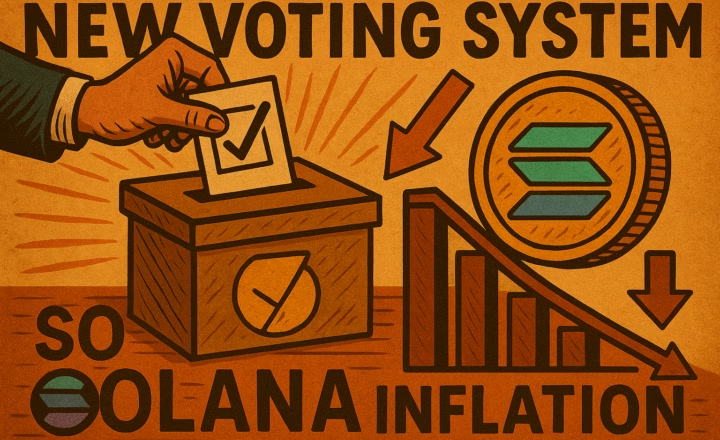Overview of the Resolution
The U.S. House of Representatives has passed a resolution aiming to repeal the reporting requirement for decentralized finance (DeFi) transactions. This move marks a significant shift toward regulatory relaxation in the digital asset space, especially for DeFi protocols and services.
Background of the Resolution
The resolution seeks to overturn the “Crypto Broker Rule” finalized by the Internal Revenue Service (IRS) last year. The IRS regulation required cryptocurrency brokers to report transaction details, including user data and transaction amounts, to the IRS. Notably, this rule extended to front-end service providers of decentralized exchanges (DEXs) and other DeFi-related platforms, treating them as traditional securities brokers.
This regulation stemmed from the Infrastructure Investment and Jobs Act of 2021, which aimed to strengthen tax compliance in the cryptocurrency sector. However, critics argued that due to DeFi’s decentralized and anonymous nature, enforcing such reporting requirements would be practically impossible.
The resolution was introduced by Representative Mike Carey (R-OH) under the Congressional Review Act (CRA), a law allowing Congress to overturn federal agency rules. The House Ways and Means Committee approved the resolution by a 26-16 vote, moving it toward a full House vote.
Market Impact
If the reporting requirement is repealed, it will significantly reduce the operational and technical burdens on DeFi service providers, as compliance with such reporting would require extensive infrastructure and data management. The financial and administrative burden of complying with the rule had raised concerns about stifling innovation and pushing U.S.-based blockchain startups overseas.
From an investment standpoint, the repeal of the reporting requirement is viewed as a positive development for the DeFi sector. Investors and industry experts believe that regulatory uncertainty has been a major barrier to further innovation and institutional adoption of DeFi. Easing these constraints could foster growth in U.S.-based DeFi projects and attract more capital into the ecosystem.
While the IRS rule was set to take effect in 2027, the resolution’s passage signals a pro-business regulatory shift that could improve long-term market confidence in U.S. digital assets.
Reactions from Experts and Stakeholders
Opinions on the resolution are divided between regulatory authorities and the crypto industry.
Government and Regulatory Authorities
The IRS and the Treasury Department argue that cryptocurrency transactions should be subject to similar reporting standards as traditional securities transactions to ensure tax compliance. The agencies maintain that the rule would only apply to entities directly interacting with customers rather than decentralized protocols themselves.
Crypto Industry and DeFi Advocates
Industry experts and investors strongly oppose the regulation, calling it “unrealistic and overreaching.” Uniswap CEO Hayden Adams criticized the rule, arguing that it should be “invalidated under the Congressional Review Act.” Uniswap’s legal team has also indicated that they would challenge the rule in court if necessary.
Bill Hughes, legal counsel at Consensys, also criticized the IRS rule, stating that it imposes significant costs without clear benefits while placing an undue burden on DeFi projects.
Political Reactions
Representative Mike Carey (R-OH) argued that if the rule remains, “the IRS will be flooded with excessive reports, creating a bureaucratic nightmare for both taxpayers and the government.” Carey and other supporters emphasize that keeping the U.S. at the forefront of digital asset innovation requires removing unnecessary regulatory burdens.
Meanwhile, some Democratic lawmakers have voiced concerns that repealing the rule may encourage tax evasion, emphasizing the need for financial oversight in the crypto space.
Future Outlook
The resolution will now proceed to a full House vote before moving to the Senate. If passed by both chambers, it will require the president’s signature to become law. However, President Biden has previously signaled support for tighter cryptocurrency regulations, meaning he may veto the resolution even if it clears Congress.
Despite potential challenges, the crypto industry sees this development as a positive signal that the U.S. government is reconsidering its approach to digital asset regulation. Even if the repeal does not become law, the resolution itself pressures regulators to modify or delay the reporting requirement.
Major industry players, including the Blockchain Association and DeFi advocacy groups, have strongly supported the repeal, arguing that compliance costs would cripple the sector’s growth. If the reporting obligation is ultimately removed, DeFi markets could benefit from increased clarity and reduced regulatory uncertainty, allowing for further innovation.
Even if the resolution is not enacted into law, the ongoing debate highlights the delicate balance between regulatory oversight and fostering a thriving blockchain industry. The coming months will be crucial in determining how the U.S. government shapes its stance on DeFi and digital asset regulations.











